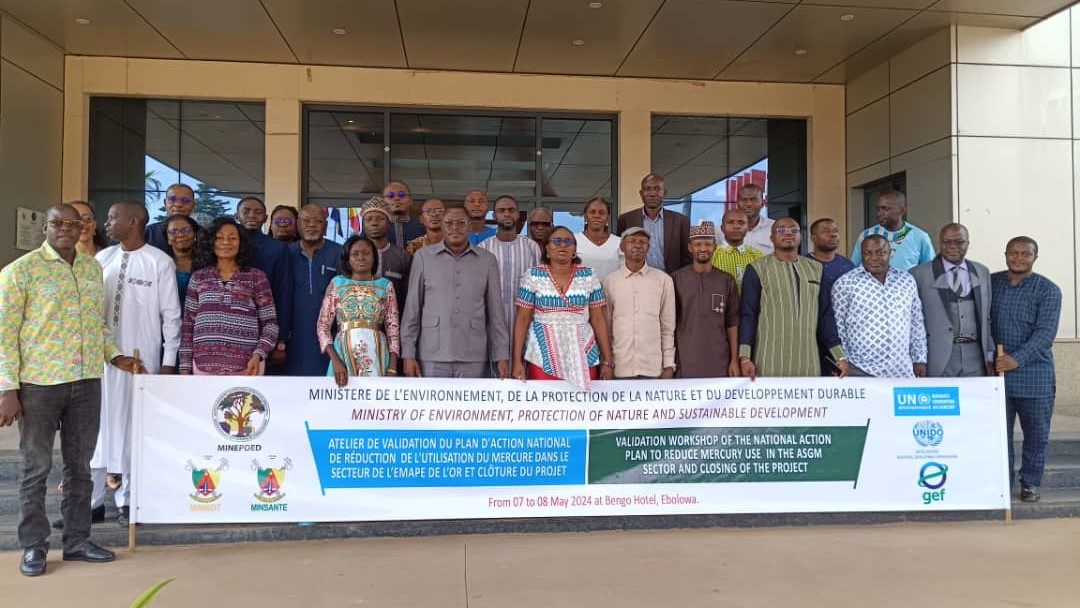UNIDO assists Cameroon to tackle mercury pollution through new National Action Plan for ASGM sector
10 July 2024

Yaoundé, 5 July 2024 –Cameroon has taken important steps towards tackling harmful mercury emissions from the country’s artisanal and small-scale gold mining (ASGM) sector through the development of a National Action Plan (NAP) for the Minamata Convention on mercury.
The NAP has been prepared in response to Article 7 of the Minamata Convention and with the intention of reducing the use of mercury in the ASGM sector to protect human health and the environment from this dangerous neurotoxin. It is the result of a Global Environment Facility (GEF)-funded project led by UNIDO in partnership with the Ministry of Environment, Nature Protection and Sustainable Development (MINEPDED).
Cameroon became a signatory to the Minamata Convention in September 2014, and Party on 10 March 2021. The ASGM sector is the world’s largest source of mercury pollution from intentional uses as mercury is simple to use, cheap and easily available. In Cameroon, ASGM is widespread, with the presence of 60 active sites in the country confirmed through the project. Project personnel visited 16 sites in the Divisions of Mbéré, Lom and Djerem and Kadey and tested soil, water and fish samples around ASGM operations to check mercury levels. Mercury use in the artisanal gold production sector was estimated by experts at equivalent to 15.1 metric tons/year with a mercury/gold ratio of 1.13.
Mercury exposure can pose significant health risks to those working in the ASGM sector and their communities, including respiratory problems and adverse impacts on reproductive health. Therefore, it was important to raise awareness of these potential risks and no fewer than nine strategies and communication tools were developed and validated under the project, along with various information sharing and dissemination events to stimulate support for future NAP implementation.
The project’s independent terminal evaluation is currently underway and according to its initial findings, artisanal miners who have participated in the project's awareness activities have reported that they have stopped using mercury, prioritizing health benefits over financial concerns.
“A collaborative approach to developing the NAP was important, with a series of stakeholder consultation meetings leading to the adoption of national objectives and the consolidation of the NAP Implementation Plan,” explains UNIDO Project Manager, Rodica Ella Ivan. Among those stakeholders, the Ministry of Mines, Industries and Technological Development (MINMIDT) and the Ministry of Public Health (MINSANTE) were involved in the project, as well as representatives of civil NGOs, a university, the Women in Mining Association, and others.
“The NAP is an important step forwards for Cameroon in the battle against mercury pollution,” affirms Eliane Mereng Bodo, Director of Standards, Licensing and Visas, MINEPDED and National Focal Point for the Minamata Convention on Mercury in Cameroon. “As well as improving our understanding of the national situation with mercury and ASGM, the NAP also provides us with a clear strategy for tackling this issue with the appropriate tools, knowledge and skills. This gives us confidence that we can meet our obligations under the Minamata Convention with the support of partners like UNIDO.”
For further information, please contact:
Rodica Ella Ivan,
Industrial Development Officer,